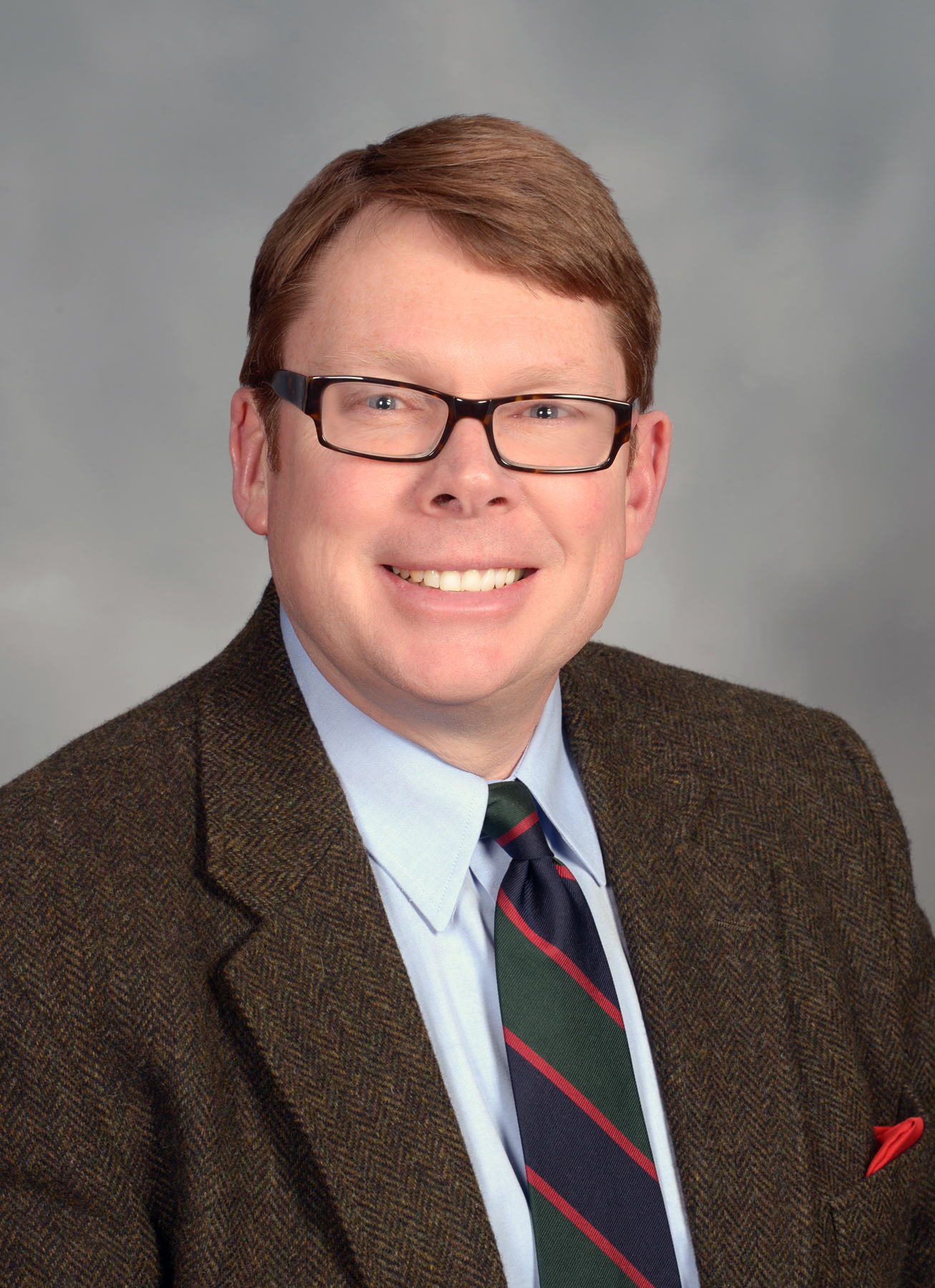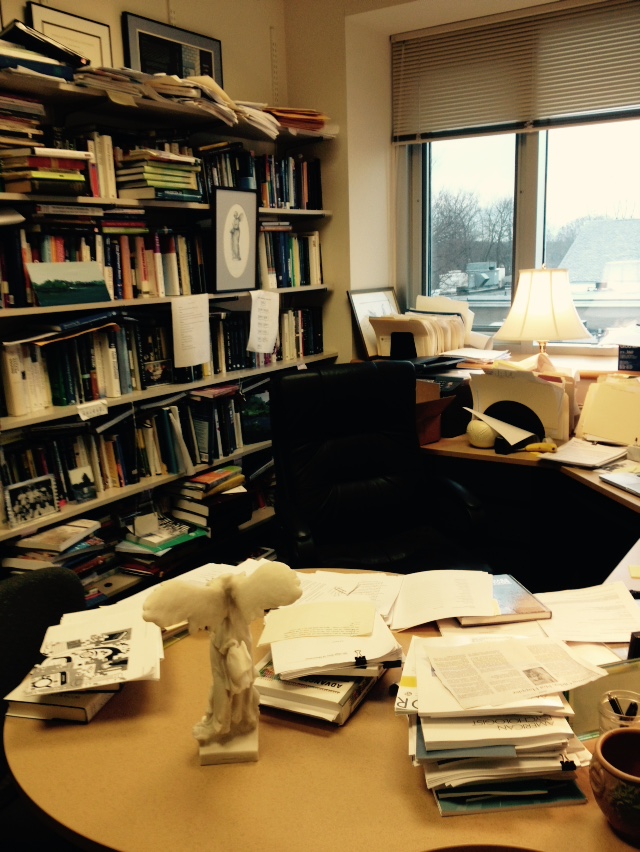
School name: Moravian College
Type of college/university: Liberal Arts College
School locale: Small City
Classes I teach: Social psychology, Psychology of Adjustment, Research Methods, Statistics, History & Systems, Positive Psychology, various Special Topics Courses/Seminars, Introductory Psychology
What’s the best advice about teaching you’ve ever received?
Two slightly incompatible suggestions: Stay two weeks ahead of the class where preparation is concerned and depart from preparation when the unexpected or spontaneous happens during class. Oh, and I try not to lecture too much, encouraging discussion instead.
What book or article has shaped your work as a psychology teacher?
Bill McKeachie’s classic Teaching Tips, of course; also James Hilton’s Goodbye, Mr. Chips, Richard Russo’s Straight Man, and the original Compleat Academic edited by Mark Zanna and John Darley.
Tell us about your favorite lecture topic or course to teach.
When I teach social psychology, I love to teach about judgmental biases for two reasons. First, students are always surprised to learn about our all-too-human foibles and second, I have the chance to share my own inferential pratfalls with them. Psychologists—me, anyway, are not immune. Life outside the classroom is complex and few of us recognize our own errors in the moment. It’s only later, when the passion is past and the chance to reflect is present that we can (hopefully) recognize them.
Describe a favorite in-class activity or assignment.
I’ve been doing a quick and easy self-serving bias exercise since I began teaching. I have students jot down a list of their personal strengths and then, a few minutes later, their perceived weaknesses. I then have them quickly tally up the number of strengths and weaknesses in their respective lists—the former usually outnumber the latter. I then ask for examples of strengths and weaknesses and write them on the board. It usually becomes apparent that the “weaknesses” aren’t really so “bad “(who doesn’t procrastinate about something?) and that many of them are the sort of “self problems” people share on job interviews (“Well, I sometimes work too hard and expect too much of myself”). The limits of these supposed weaknesses allow us to return to the notion of the self-serving bias and to view it as protective form of social and self cognition.
What teaching and learning techniques work best for you?
I recently began weekly exams in my Adjustment class and I really like how their regularity encourages students to keep up on the material. In upper-level classes, I like to give in-class essay exams at midterm and then give all essay take-home tests for the final.
What’s your workspace like?
My college office often looks like the aftermath of a train wreck—students laugh about it—so many project piles here and there, stacks of books and files. In my darker moments when I view the chaos that is my office, I remember my graduate mentor’s wise observation: Never trust anyone with a clean desk and a clutter-free workspace, as it means they really aren’t doing much. My study at home, which is in slightly better shape, has two desks—one for planning things and editing, and the other for writing. Both my campus and my home office have too many books but I suppose there are worse things than having too many books.
 Three words that best describe your teaching style.
Three words that best describe your teaching style.
Socratic, humorous, anecdote-based.
What is your teaching philosophy in 8 words or fewer?
Be engaging, emphasize writing and observation, end well.
Tell us about a teaching disaster (or embarrassment) you’ve had.
Most of my embarrassing moments deal with technology—the video or statistical software I loaded and used effortlessly in my office fails to work when I am live in front of the class. This fall, for example, I was showing some YouTube videos of social psychology experiments and none of them--none--would load properly. Soon the students were offering advice--the kind that has a vague whiff of “I can’t believe you can’t do something so easy!” to it--there were some eye-rolls assessing my competence, which were no doubt deserved. But I keep at it.
What is something your students would be surprised to learn about you?
Although my classroom persona may say otherwise, I am actually a rather shy person.
What are you currently reading for pleasure?
I try to read widely. I am currently reading a novel called The Hundred-Year House by Rebecca Makkai. I love to read about architectural history and Japanese gardens. I read a lot of cookbooks and use them, too. Our campus-wide faculty reading group will be discussing the book How Learning Works: Seven Research-Based Principles for Smart Teaching this spring.
What tech tool could you not live without?
I love my Macs, but I still rely on yellow legal pads and a good pen.
What’s your hallway chatter like? What do you talk to colleagues about most (whether or not it is related to teaching/school)?
We talk about the hassles and uplifts associated with teaching, and share what activities work and which ones don’t. We try to avoid complaining about what students don’t know or, worse, hearkening back to some “golden age” when students were “perfect” (I would not want to see myself when I was a first-year college student—yipes!).
PSYCHSESSIONS UPDATE: Listen to Dana talk with Garth and Eric in 2019 about his current ableism research, the P3 conference, and his admirable writing discipline! https://psychsessionspodcast.libsyn.com/e073-dana-dunn-prolific-and-influential-writer-generative-scholar-leader-of-leaders
